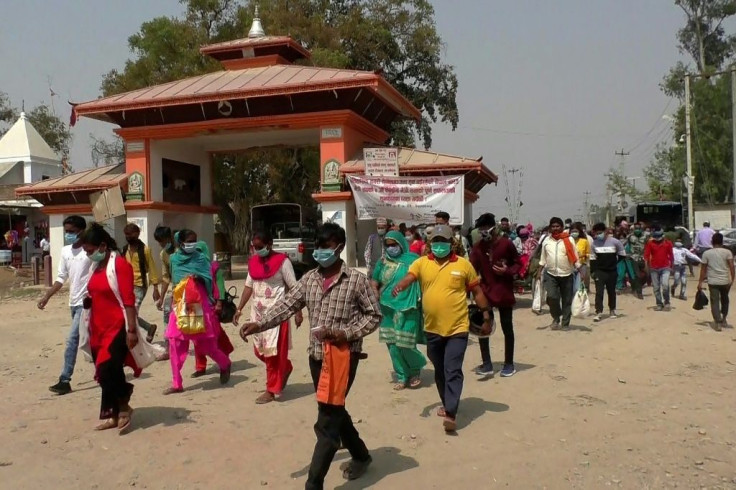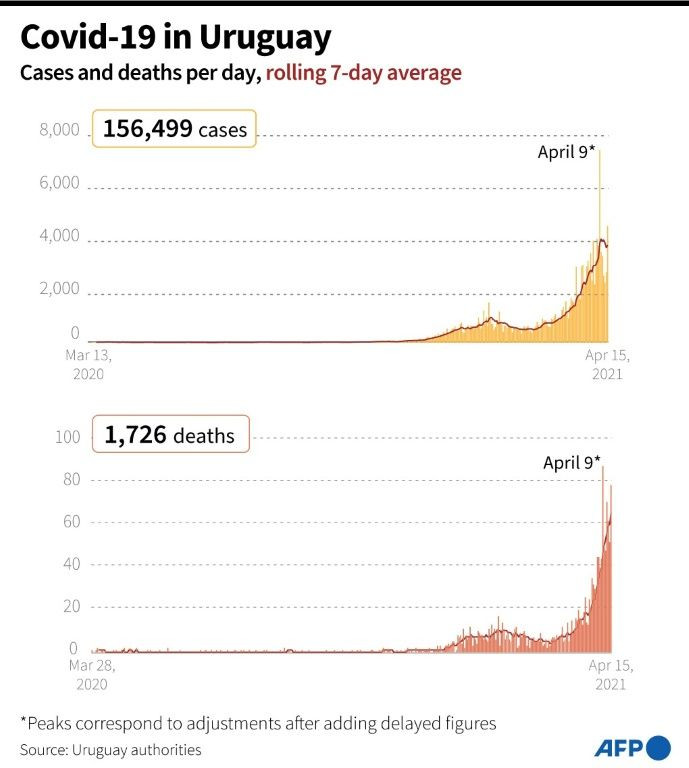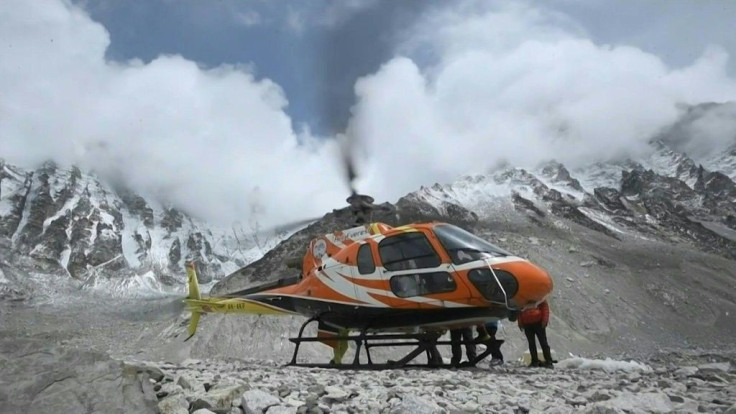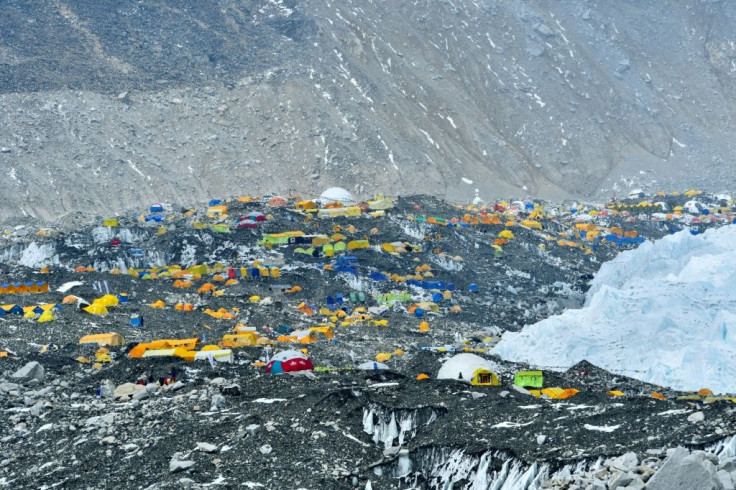Record Jump In Virus Cases Signals Impending Crisis In Nepal
Health workers and authorities in Nepal are struggling to contain a massive surge of Covid-19 cases as infections spill over from neighbouring India's deadly second wave.
In the last three weeks, Nepal's daily case trajectory has shot up with two out of five people tested now returning positive. On Thursday, Nepal reported 9,023 cases, the highest single day increase.
More than 3,500 people have died since the pandemic began, 400 of them in the last two weeks alone, according to official figures.

"Health facilities have been flooded with symptomatic cases... The situation could become worse in the coming days," Hemanta Chandra Ojha at Nepal's Epidemiology and Disease Control Division told AFP.
"We can manage the oxygen supplies but ventilators and ICU facilities required for the treatment of severe cases are in short supply."
The country's health system has been overwhelmed by the sudden spike, with hospitals filling fast.

Nepal shares a 1,850-kilometre (1,150-mile) open border with India, and communities commonly travel across it for work and to visit family, and many are now returning home.
In Bheri Hospital in Nepalgunj, a city bordering India's Utter Pradesh state, health workers are working tirelessly as the patient flow continues to grow.
"The hospital is overloaded, we are treating patients at each and every corner of the building," said Badri Chapagain, a doctor at the hospital.
Relatives of patients are scrambling for medicine and intensive care beds.

Tanka Nath Pandey spent two days looking for an ICU bed for his ailing brother-in-law in Kathmandu.
"I cannot say how difficult it was. We have found a bed now but we are searching for Remdesivir vials. We are exhausted," Pandey said.
Surya Raj Pandey, who co-founded Covid Connect Nepal, a volunteer group to help patients, said that requests for ICU beds and oxygen cylinders are growing each day and it is becoming harder to find matches.

Nepal shut down almost all flights this week and has imposed lockdowns or partial lockdowns in 80 percent of its districts to curb infections.
The country's tourism industry suffered a devastating blow in 2020, and this year climbers at its big money-spinner Mount Everest have tested positive, raising fears the virus may ruin a a hoped-for bumper season on the world's highest mountain.
At 1.79, Nepal currently has the highest effective reproduction rate, which shows how many others one infected person is infecting.
Budhi Setiawan, head of health at UNICEF Nepal said that the impact has been "devastating".
"The sheer number of cases striking the health system (is) making it more vulnerable for people now if they are infected with Covid-19, there have been limitations with getting the appropriate care," he said.
Earlier this week Prime Minister KP Sharma Oli, who has been criticised for his handling of the pandemic, appealed to the international community to ensure supply of vaccinations and medical supplies to help Nepal fight the virus.
Nepal's vaccination campaign, which began in January, has faced uncertainty after only half of the ordered supplies from India were delivered.
In a country of 30 million, only 2.4 million shots from India and China have been administered, and only a small fraction have received both doses.
In early April, Nepal was reporting fewer than 200 cases a day.
Even as cases rose in neighbouring India, mass gatherings including religious festivals, political meetings and weddings continued in the country.
Last week, Nepal banned Indians from using Kathmandu as a transit after Indian nationals increasingly flew out of Kathmandu following flight restrictions from India.





















